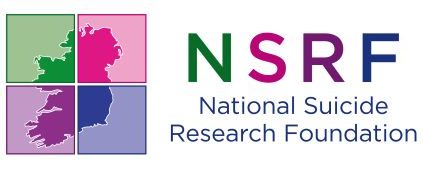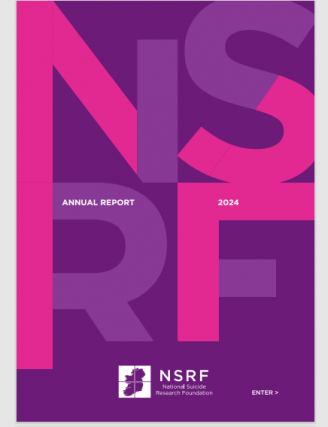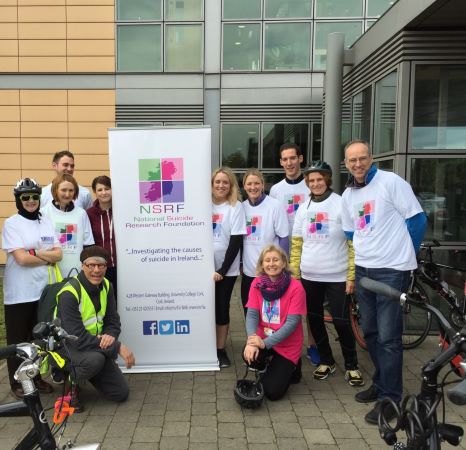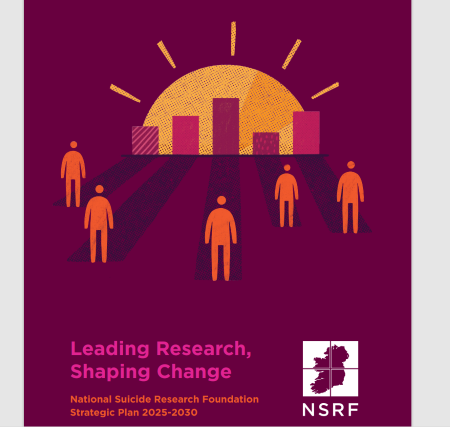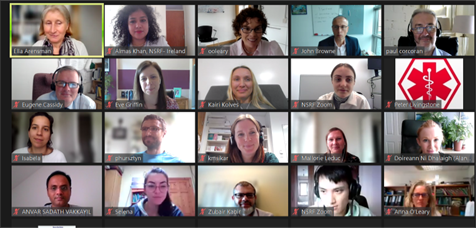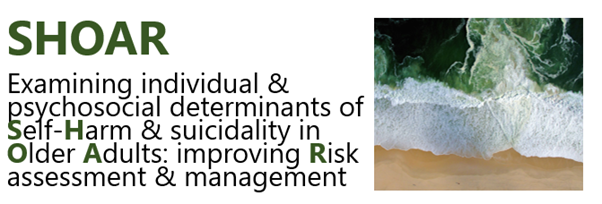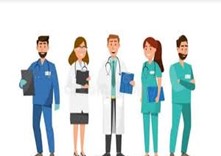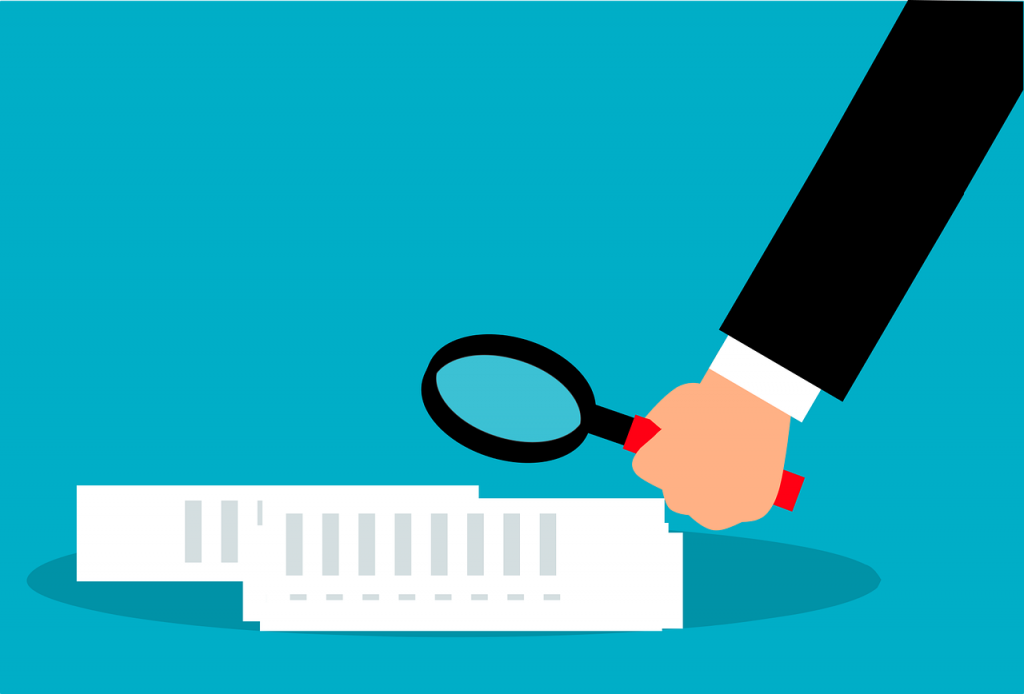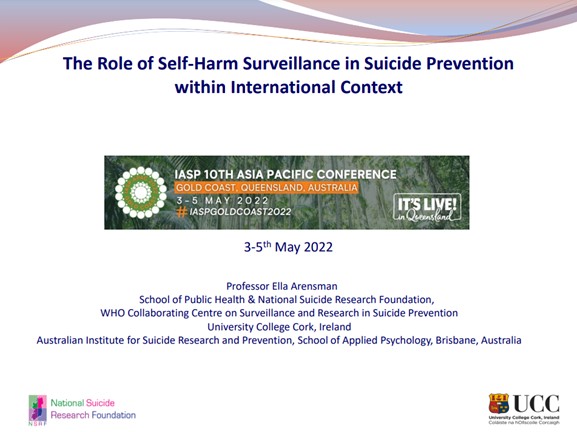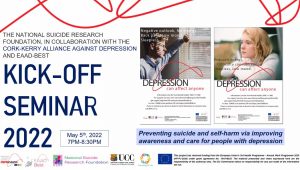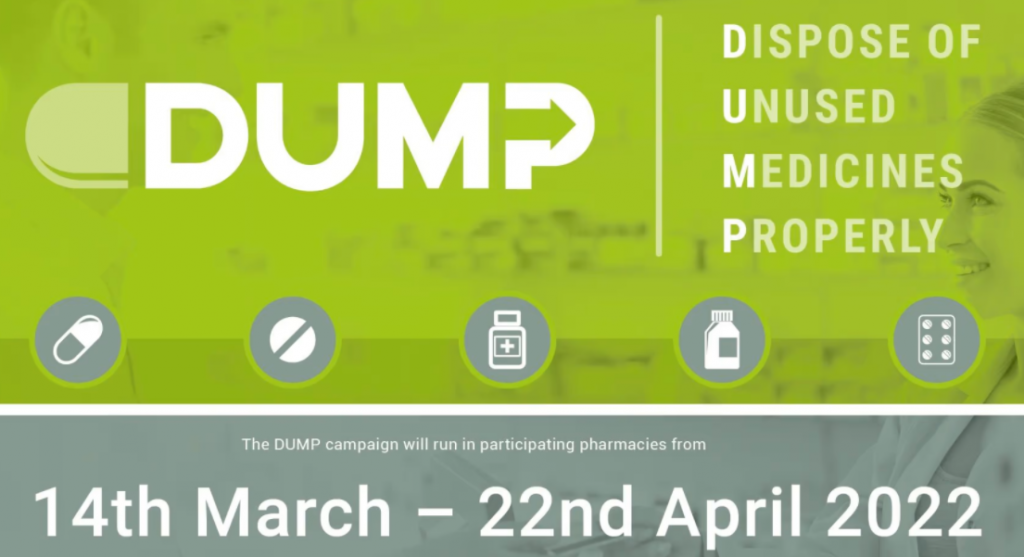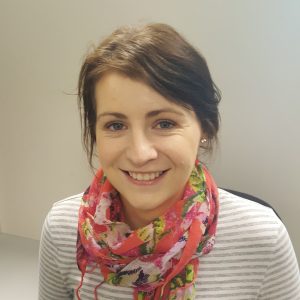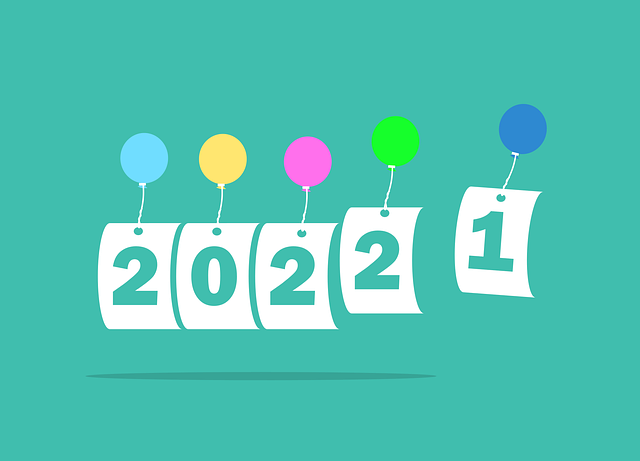Author: Fenella Ryan and Niall McTernan
Welcome to our latest news round-up. Our team have been incredibly busy over the past few months. We include some highlights below.

Journal articles
NSRF researchers have been involved in 14 peer-reviewed journal articles published since June:
1.Preventing Suicide in Health Systems: How Can Implementation Science Help? Archives of Suicide Research. Larkin C, Arensman E, Boudreaux.
2. Real-Time Suicide Surveillance: Comparison of International Surveillance Systems and Recommended Best Practice. Archives of Suicide Research. Benson R, Rigby J, Brunsdon C, Corcoran P, Dodd P, Ryan M, Cassidy E, Lascelles K, De Leo , Crompton D, Kõlves K, Leske S, Dwyer J, Pirkis J, Shave R, Fortune S, Arensman E.
3. Mental health following an initial period of COVID-19 restrictions: findings from a cross-sectional survey in the Republic of Ireland. HRB Open Res 4:130. Troya MI, Joyce M, Khashan A, Buckley C, Chakraborti K, Hoevel P, Humphries R, Kearney PM, Kiely E, Murphy M, Perry I, Arensman E.
4. The development and validation of a dashboard prototype for real-time suicide mortality data. Front. Digit. Health 4:909294. Benson R, Brunsdon C, Rigby J, Corcoran P, Ryan M, Cassidy E, Dodd P, Hennebry D, Arensman E.
5. Time of self-harm presentations to hospital emergency departments: a scoping review. Soc Psychiatry Psychiatr Epidemiol. McEvoy D, Clarke M, Joyce M.
6. Dialectical Behavior Therapy for Individuals With Borderline Personality Disorder: A Systematic Review of Outcomes After One Year of Follow-Up. Journal of Personality Disorders, 36:4. Gillespie C, Murphy M, Joyce M.
7. Real-time suicide surveillance supporting policy and practice. Global Mental Health, 1-5. Benson R, Brunsdon C, Rigby J, Corcoran P, Ryan M, Cassidy E, Dodd P, Hennebry D, Arensman, E.
8. Suicide numbers during the first 9-15 months of the COVID-19 pandemic compared with pre-existing trends: An interrupted time series analysis in 33 countries. eClinicalMedicine, 51. Pirkis J, Gunnell D, Shin S, Del Pozo-Banos M, Arya V, Aguilar PA et al.
9. Substance use and self-harm presentations during COVID19: evidence from a National Clinical Programme for Self-Harm. Irish Journal of Psychological Medicine, 1-6. Maguire E, Kavalidou K, Bannan N, Doherty AM, Jeffers A.
10. Police-reported suicides during the first 16 months of the COVID-19 pandemic in Ecuador: A time-series analysis of trends and risk factors until June 2021. The Lancet Regional Health – Americas, 14:100324, Gerstner RM, Narvaez F, Leske S, Troya IM, Analuisa-Aguilar P, Spittal MJ, Gunnell D (2022).
11. The role of work in suicidal behavior – uncovering priorities for research and prevention. Scand J Work Environ Health. Greiner BA, Arensman E (2022).
12. Supporting employees with mental illness and reducing mental illness-related stigma in the workplace: an expert survey. Eur Arch Psychiatry Clin Neurosci 1-15. Hogg B, Moreno-Alcazar A, Toth MD, Serbanescu I, Aust B, Leduc C, Paterson C, Ni Dhalaigh D, Arensman E et al (2022).
13. The impact of the COVID-19 pandemic on presentations to health services following self-harm: systematic review. Br J Psychiatry. Steeg S, John A, Gunnell DJ, Kapur N, Dekel D, Schmidt L, Knipe D, Arensman E, Hawton K, Higgins JPT, Eyles E, Macleod-Hall C, McGuiness LA, Webb RT (2022).
14. Intimate Partner Violence: breaking the silence. The Lancet, vol. 9(7),pp.530-531. Griffin, E and Arensman E
Reports
Ireland’s First National Suicide Bereavement Survey ‘AfterWords – A survey of people bereaved by suicide in Ireland’, a collaboration between the NSRF and HUGG, was launched by Minister Mary Butler on Tuesday 11th October 2022 at an event hosted by the Lord Mayor of Dublin, Caroline Conroy, at the Mansion House, Dublin.
The launch was followed by a key stakeholder workshop, which generated important action points and priority recommendations to inform service development and policy, along with further research in this area.
Report: https://www.nsrf.ie/wp-content/uploads/2022/10/Suicide-Bereavement-Survey-report_digital.pdf
Our 2021 Annual Report was published in September and is a great way to learn more about the work of the NSRF and our activities in 2021.
NSRF-annual-report-2021-digital.pdf
The 2020 Annual Report of the National Self-Harm Registry Ireland was published on November 9th, in addition to a data briefing covering the period January-June 2021, utilising data from a sample of 22 hospitals.
2021 Data Briefing – https://www.nsrf.ie/wp-content/uploads/2022/11/Hospital-presenting-self-harm-during-January-June-2021-data-briefing-November-2022.pdf
Presentations
Disseminating and sharing our research findings is important to us. Team members attended various national and international Conferences and Seminars, delivering informative presentations and connecting with other suicide and self-harm researchers. This included the large European ESSSB19 Conference in Copenhagen in August. All NSRF presentations at ESSSB19 listed below.
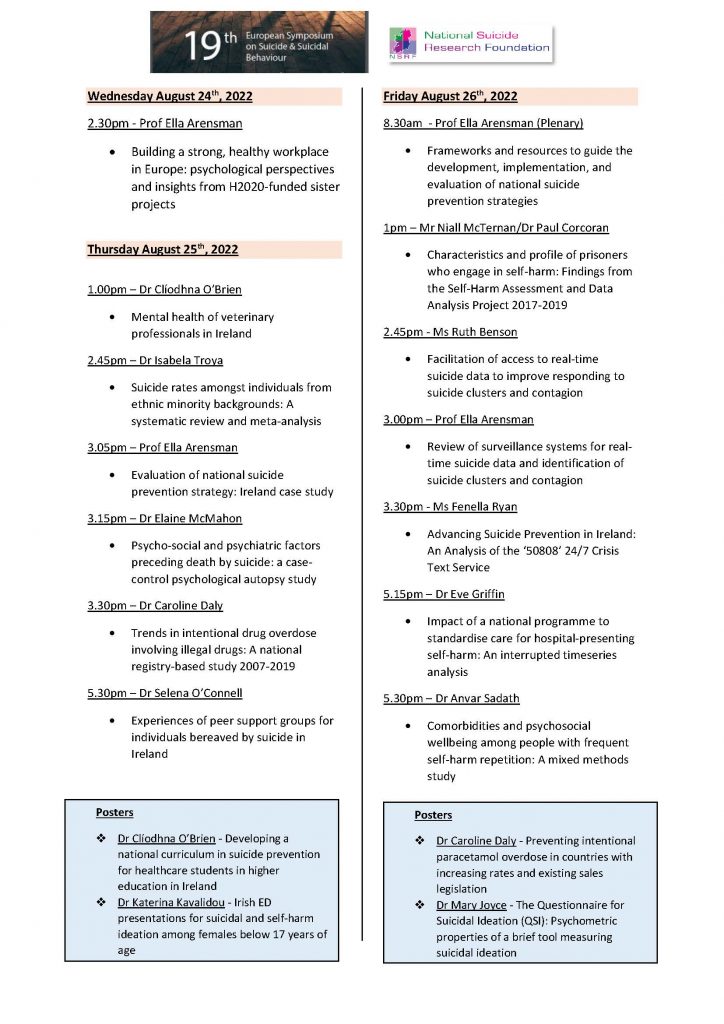
Events
Members of the NSRF attended a meeting of the Pan-European Mental Health Coalition in Copenhagen on August 23rd. NSRF areas of expertise in relation to key priority areas within the European Framework for action on Mental Health 2021-2025 were discussed.

On September 15th, we hosted a World Suicide Prevention Day Webinar at which we launched our new HRB Ireland Research Training Programme – MHAINTAIN.
An EAAD-Best training demonstration & the iFightDepression website were also highlighted.

On October 14th, we held a Suicide, Self-Harm and Mental Health virtual Seminar to mark World Mental Health Day.

Congratulations!

Huge congratulations to Ruth Benson, who successfully passed her PhD Viva in October. Ruth’s thesis addressed: Real-time surveillance for evidence-based responses to suicide contagion and clustering, which she conducted in the School of Public Health and the National Suicide Research Foundation.
Congratulations to Dr Caroline Daly for winning the best poster presentation award at the 19th European Symposium on Suicide and Suicidal Behaviour in Copenhagen for her work on ‘Preventing intentional paracetamol overdose in countries with increasing rates and existing sales legislation’

Looking ahead
As we approach the end of the year, our team will be finalising projects and reports and beginning to reflect on 2022 as a whole. For all our latest news and updates, keep an eye on our Twitter, our Publications and Outputs and our Upcoming Events page.
